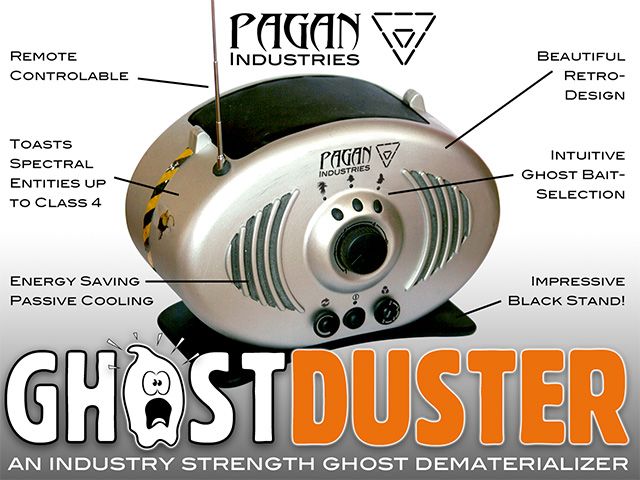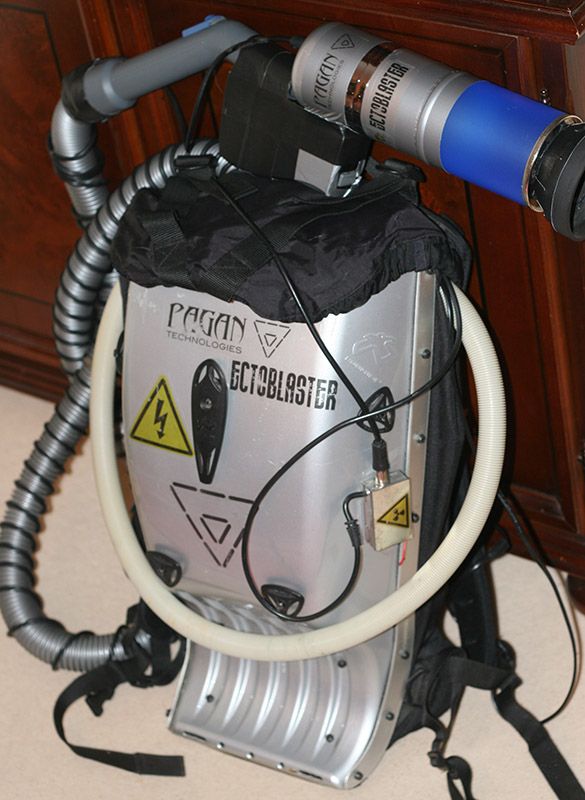Snakes & Ladders - the ups and downs of a small game developer Chapter 1
Chapter I - PacMan gone wrong
GhostControl Inc.
It was back in 2013 that - after having run a partially successful kickstarter for what brought me into the developing side of the games business, Days of Dawn - I had and took the chance of developing another game of my dreams: a remake, a rebirth of one of the very early games in my personal game-history, the original Ghostbusters game by David Crane.
I first experienced the game on an Amstrad CPC (which later became my first computer) and I was in awe. Not only did I love Ghostbusters dearly, the concept of simulating a business by buying equipment at the beginning of the game hyped me.
Almost 30 years after this experience, a publisher called me, asking if we had any other project at hand, besides Days of Dawn, which they thought to be somewhat too expensive for a first collaboration. Good luck I had the idea of GhostControl Inc. (yet carrying the working title "Ghosthunters") already in my mind.

One of the earliest original concept images of the game
Before starting to develop games myself, I had been working for the games industry - primarilly publishers - for over ten years and I thought it to be the coolest, friendliest and best business to be in. In early 2012 I decided it is time to go all in and make my very own games.
I already had a small team assembled, originally intended for the development of Days of Dawn only: Tom, the coder and Philipp as a game designer, to assist me in terms of balancing. Why not, I thought, pull off a smaller project beforehand, generating some revenue to support the development of Days of Dawn?
My calculation was as simple as wrong: Given we sell the game for 10$ on Steam and produce it for the (incredibly low) sum of a low 5-digit budget, we'd need as little as about 10.000 sold copies to generate some cash. 10,000 copies on Steam? Come on, that's got to be no big deal.

The original scribbles looked quite different from what the game became to be
Unfortunately, I didn't expect the possibility of a coder failing. We had a game full of bugs and hardly anything near complete when we had to exhibit at the Gamescom of 2013, being part of the very first "Indie Arena" exhibition. To be honest, we had a hard time trying to prove the players this game was worth anything at all. It crashed, it didn't play well and it was full of flaws and unfinished areas. We only managed to showcase the game at all because of Lars, an coding intern whom I had the big, big luck of applying for a job just two months before gamescom.
Luckily, he went all in and quite saved the project from massive failure (Lars is, by the way, the first real employee of bumblebee and the last one still in service today).
With him on board and the game slowly getting back on track for a release, it was my task to somehow pump up some promotional material for both the gamescom and the public in general. Without any budget. Lucky me.
I decided to go for two methods: a cosplay live-act during the gamescom and a live-action trailer for YouTube and Steam. Both would be using the same props - equipment from the actual game, which I somehow had to gather on a no-budget base.

A screenshot of the initial version of GhostControl Inc.
I must have been strolling about almost every flea market around, checking bric-a-brac for anything resembling ghosthunting equipment. Eventually and thanks to the support of a local Hein Gericke store, providing us with borrowed motorcycle suits and boots free of charge, I came up with a pretty neat pack of tools and dress. With some tape and time I mangled up a set of ghosthunting equipment made of old cables, long-dead electronics and forgotten kitchen-tools. The games publisher agreed on putting a small budget for a hyper-low budget video production on top and I managed to find a small, dedicated team of young filmmakers willing to do the filming of our clip for a few bucks.

The video's original script
I put literally everything I had into this game and its marketing materials, but I didn't worry. I had the time of my life and I loved every minute of it. Filming the video for a game I always urged to create felt like a dream come true and I had so much fun doing it. We eventually released it before the release of the game, expecting to create some hype.
(url)[
The original trailer, including the live action and some pre-alpha footage

One of the video's props, the GhostDuster (originally a radio toaster (sic!))
Unfortunately, the trailer pretty much failed. Without any followers or track record so far and without any chance of it going viral, we could do nothing but hope for the upcoming gamescom, presenting our yet buggy game to the public and doing our live performance.

We bought some cheap polish working-overalls as the gamescom ghosthunting outfit
While the game didn't manage to perform well in it's early beta-stage during the show, I got in contact with Michael, a video-journalist working for german telly and managed to get him interested in our small, aspiring business and the game. He accompanied us during the tradefair and took a lot of footage of our performance. This and the terribly performing trailer in mind, I thought of other ways of getting publicity.
And so I called up a team of real ghosthunters and we agreed on going to a ghost hunting tour, right into some abandoned houses. I did the neccessary calls to get a go from the owners and we were free to enter some haunted houses in the Ruhrgebiet, along with real professionals and Michael filming the jamboree.

The "Ectoblaster" was originally a boblebee-backpack. boblebee, bumblebee. Get it?
The resulting footage actually ended up being a major 11-minute segment of germany's most accredited video-game show (Pixelmacher) of its time (watch the german video on (url)[
Luckily, the game progressed well, with intern Lars saving the day and repairing the messed code and eventually presenting a playable game. It took a few revisions wiping out the last massive bugs, but as of today we've got a cool and well-rated game up and running on Steam ( (url)[http://store.steampowered.com/app/280540/GhostControl_Inc/] ).

The game takes place in a pixelart version of London
All this took place five years ago. While working on several other games since, we kept revisiting the game, enhancing it and pushing it up to version 3.5 at the time of writing this. Being our first released game, it will always hold a very special place in my heart. And while it didn't perform as we hope it would, it is beloved by many to this very day - me being one of them.

A screenshot of the most recent version 3.5 of GhostControl Inc.
The ups and downs of our small team didn't end with GhostControl Inc., unfortunately, but that's a story to be told another time.
this looks so great! I loved theme hospital and I LOVE LOVE LOVE turn based strategies.... I may have to look this up! hehe. I actually found you because Im currently on the lookout for developers to talk to about an idea I have. It is for an evolution based tamagochi style game that could potentially be classed more as an experiment than a game, but has plenty of room for discussion. I imagine its main development feature would be packets of information that can in turn create new packets of information, and that the complexity would be indexing the relationships between the information. I am not a developer so I am not eloquent in this field and I realise that this sort of thing is a lot of work so I am looking for developers who are excited about the concept of artificial evolution and would be interested in a passion project. Obviously in the crypto world there is plenty of potential to monetize but those considerations may have to be secondary to the thrill of the experiment! If by any chance you're interested in something like this, then please let me know and we can chat about it! x Basil